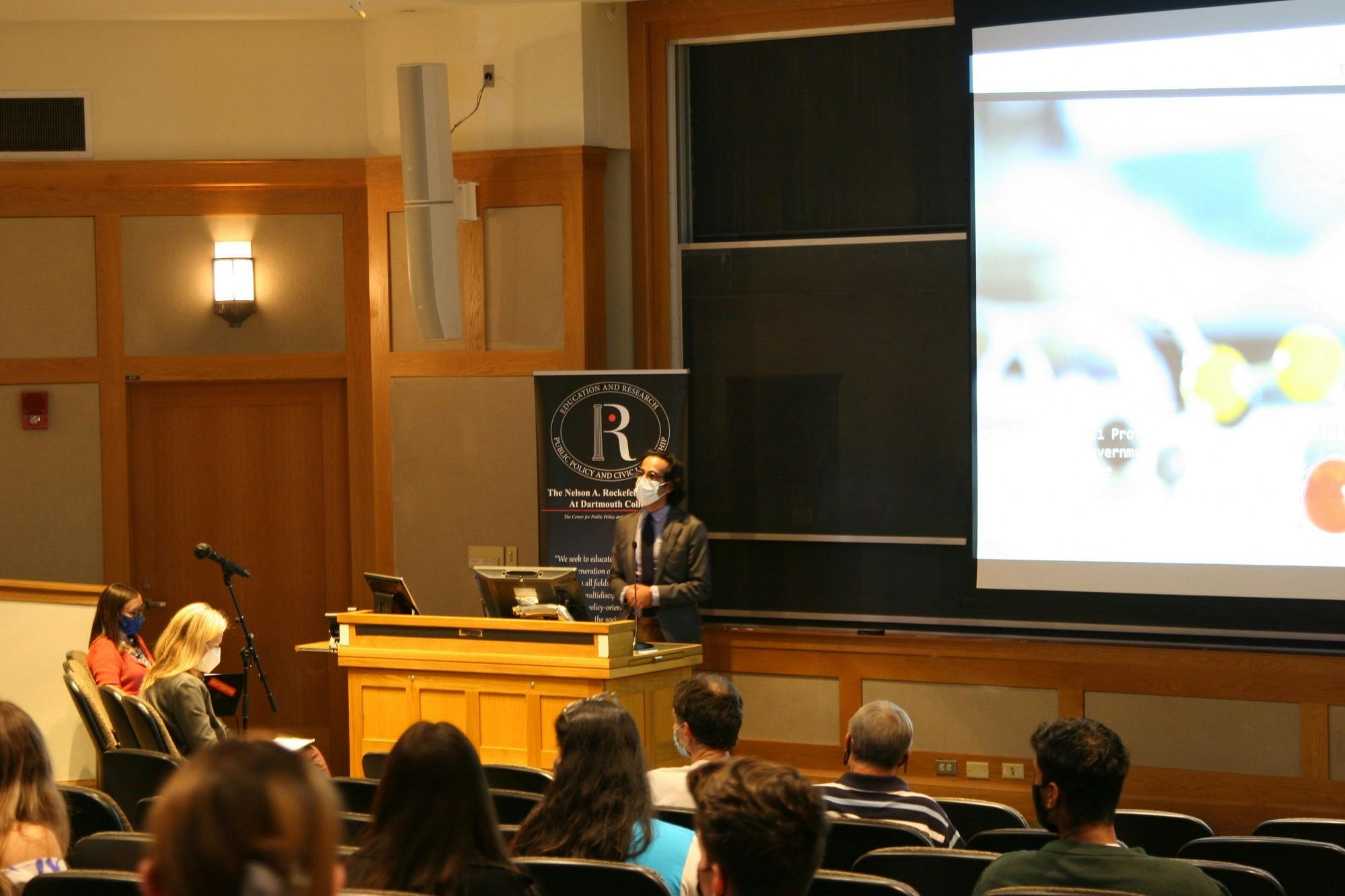On Sept. 17, the Rockefeller Center for Public Policy held its first event of the term — a celebration of Constitution Day and the adoption of the U.S. Constitution. Students and community members gathered both in person and virtually to hear government professor Sonu Bedi deliver a lecture titled “The Science of the Constitution: The Supreme Court and a Practice of Disagreement.”
Government professor Julie Rose, the moderator of the event, provided the opening remarks for Bedi, who has been teaching at Dartmouth since 2007 and is the author of four books about constitutional law.
Bedi began his talk by asking the audience to engage with the Constitution as scientists rather than as members of a political party or a certain community.
Elda Kahssay ’24 said she appreciated Bedi’s approach to the Constitution.
“I think it was the first time in a long time that I was able to listen to a talk on two opposing sides of American politics that wasn’t incredibly polarized,” Kahssay said.
Bedi said his conception of the phrase “science of the Constitution” originated during his teaching of the course GOVT 66.02, “Constitutional Law, Development, and Theory” in spring 2020.
“I really started seeing it this way when classes went to Zoom … there [were] all these ways in which doing the class virtually via Zoom sort of required seeing what’s happening as clearly as possible,” Bedi told the audience.
Bedi introduced abolitionist Frederick Douglass, who interpreted the Constitution as an “anti-slavery document, as “the first political scientist of the Constitution.” Douglass’s speech at the Scottish Anti-Slavery Society on Mar. 26, 1860, Bedi said, inspired his own approach to the Constitution.
“This is the speech that we read in class, and this is the speech that frames the methodology not only of this lecture, but the methodology of how I approach the study of the Constitution,” he said.
Bedi emphasized the importance of the justices’ opinions that have been sparked by the Constitution.
“What we study are the opinions that they bring,” Bedi said. “The opinions are part of the science of the constitution. The opinions are crucial to understanding how this document works.”
Lily Hemmins ’24 said her favorite part of the talk was Bedi’s discussion of Supreme Court justices’ diverse interpretations of the Constitution.
“Even though a justice might be conservative, they can have modern or traditional views of the Constitution and perceive its standards and rules differently,” Hemmins said. “I learned more about how to interpret the Constitution and how justices do the same.”
Bedi then moved to one of the central themes of his talk — the difference between the traditional and modern republic and how they are both represented in the Constitution. He also provided a brief history on how the document was created amid division between the Federalists and Anti-Federalists, the primary political division in the early days of the United States.
“There is this modern republic, but at the same time, we did not get rid of the traditional republic,” Bedi said. “In fact, states are the crucial mechanism by which Americans interact on the constitutional level.”
Kahssay said she was surprised to learn of the Constitution’s significant influence in modern politics.
“I don’t think I ever related modern Republican and Democratic ideas to federalism and anti-federalism, and I didn’t realize how much of our modern discourse is rooted in a very old document,” Kahssay said.
In an example, Bedi described former justices Ruth Bader Ginsburg and Antonin Scalia as embodiments of the traditional and modern republic, respectively. He noted that, despite their differing political views, Ginsburg and Scalia maintained a close friendship, arguing that a traditional and modern republic can and do similarly exist alongside each other despite their conflicting origins.
According to Bedi, a typically left-leaning issue, for example, can fit into either a traditional or modern reading of the document, so “disagreement is not a bug, but rather a feature” of the Constitution itself. He added that political disagreement is ingrained into the Constitution and, good or bad, is not surprising.
In an interview after the event, Bedi reiterated his appreciation for his students.
“One of the nice things about talking about the Constitution is discussing it with students because with students, we are all exploring it together,” Bedi said.




